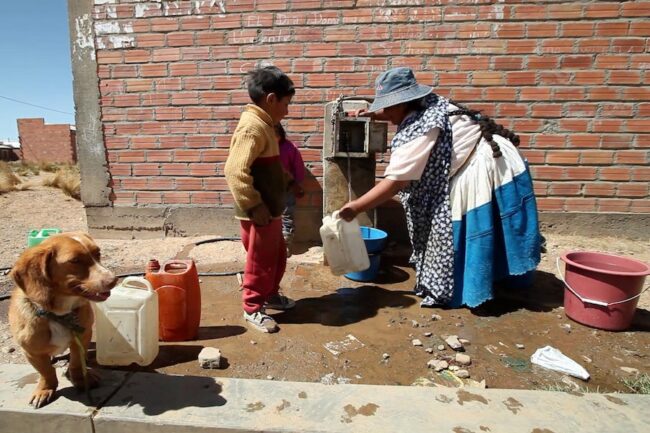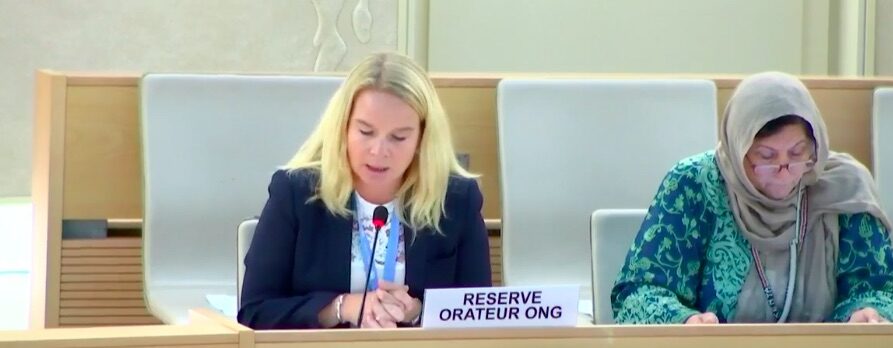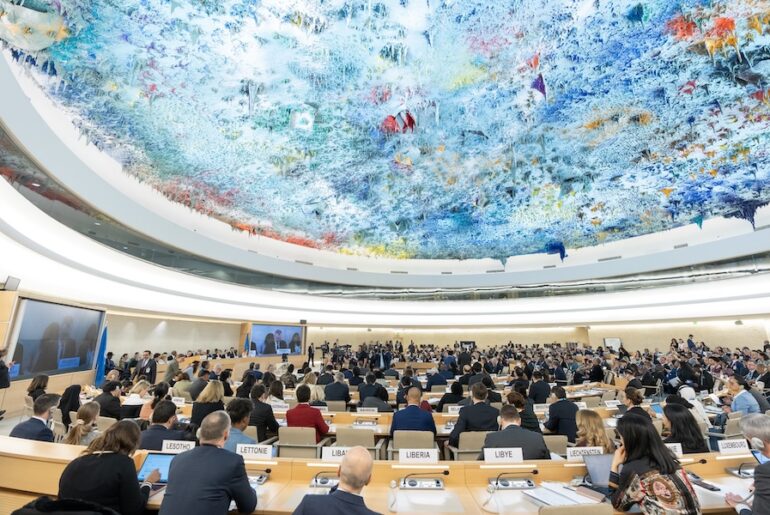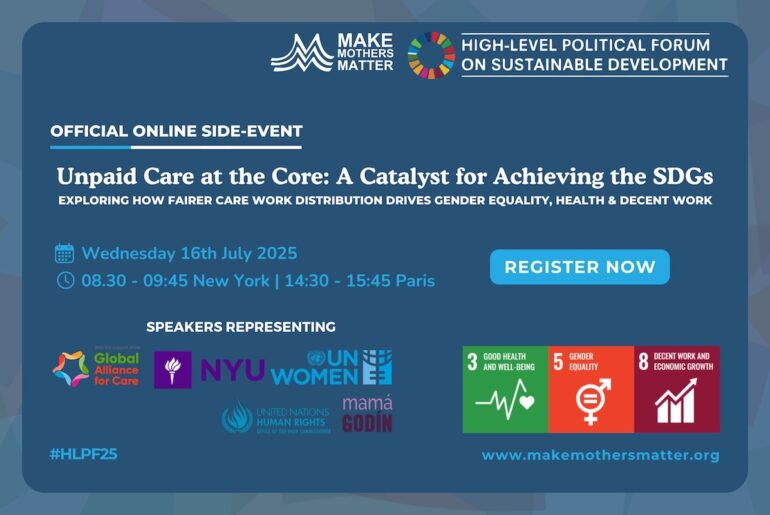Using the Right to Development to transition to a Wellbeing Economy that recognizes and supports Care
22.09.22
UN Geneva, Human Rights Council - MMM's intervention to the Council stresses the need to recognize the central role that unpaid family care work plays in our economy and society, and identifies the Right to Development as the perfect framework to bring about the necessary systemic changes. A transition to an economy that serves the wellbeing of people and the planet is the way forward. And this begins by recognizing the unpaid work of caring as a collective responsibility.

The following is the oral statement as delivered by our representative to the UN in Geneva, Karen Thorsen.
As rightly stated in the report of the Special Rapporteur on the right to development, the Covid-19 crisis has had a disproportionate impact on women, worsening existing and deep-rooted inequalities and discriminations.
It was also an eye-opener:
- It showed how Care is central to our lives, and that this essential work is not properly recognized and valued
- It shed light on the inequitable distribution of this unpaid work, a cause of economic injustice for women, mothers in particular
- It exposed gaps in social protection and inadequacies in current systems to recognize and support unpaid caregiving
We now face a unique opportunity to redress these systemic failures – by putting Care and Education at the centre of recovery policymaking.
This means:
- Recognising unpaid care work as essential work and a collective responsibility, benefitting society across generations
- Considering universal social protection to support parents and families as a high-return investment in people, not an expense to be minimized
- Acknowledging that the multiple crises we face today (Covid-19, but also climate change, environmental degradation, rising inequalities…) are all deeply rooted in an economic system that fails to recognize, value, support, and invest in what’s essential to our wellbeing – Care and a healthy environment
The Right to development is the perfect framework to move beyond the ‘GDP growth’ narrative and prioritize the long-term wellbeing of people and the planet in all policy-making.
It is time to transition to a wellbeing economy – with care and education at its heart.
This oral statement was delivered during the discussion which took place during the 51st session of the Human Rights Council following the presentation of the annual thematic report of the UN Special Rapporteur on the Right to Development on the impact of the Covid-19 pandemic.
See also:
→ our 2020 HLPF side-event report on ‘Care and Education: cornerstones of sustainable and just economies’
→ information on the Right to Development by the Office of the High Commissioner for Human Rights (OHCHR)

Envisioning care as a common thread to global crises
29.07.24
UN New York - Our virtual HLPF side-event brought together experts to shed light on how the various global crises we face (in particular climate change and other environmental crises,
We call for multi-stakeholder approach to recognise and support unpaid care work
21.07.24
UN New York - Participating in the meeting of the UN Economic and Social Council (ECOSOC) on care and support systems, MMM reaffirmed the principle of co-responsibility, which should underpin
The New EU Gender Equality Roadmap : A Call for Inclusion of Mothers
04.03.25
The European Commission’s initiative on a new Gender Equality Roadmap post-2025, marks a significant step forward in addressing gender disparities across the European Union. Make Mothers Matter (MMM








